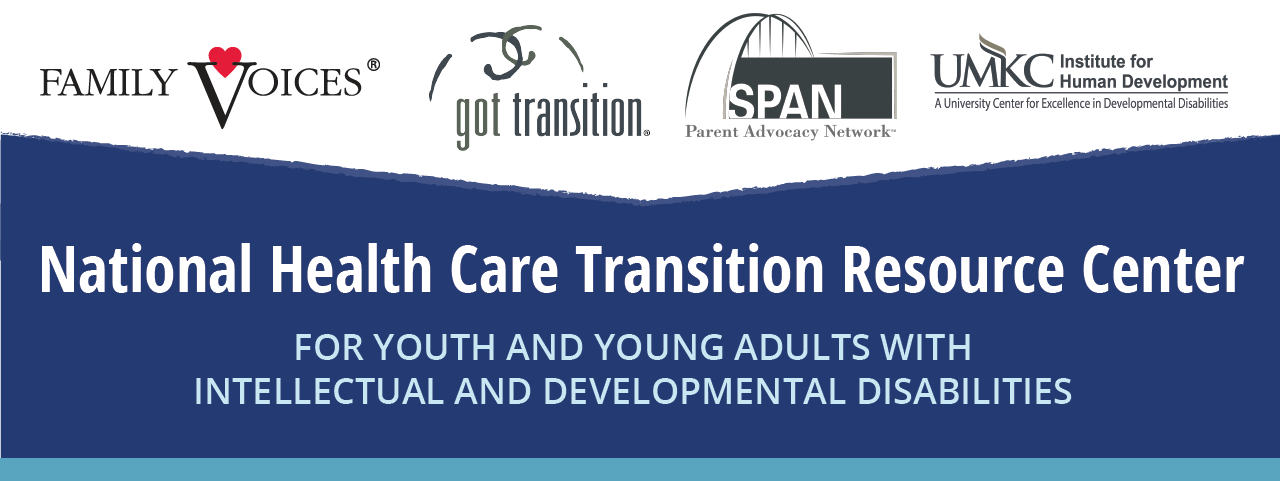We are excited to share a youth engagement opportunity with the new National Health Care Transition Resource Center for Youth and Young Adults with Intellectual and Developmental Disabilities.
About the National Health Care Transition Resource Center (NHCTRC)
The National Healthcare Transition Resource Center (NHCTRC) for youth with intellectual and developmental disabilities (ID/DD) will provide healthcare transition training and resources to youth and young adults with ID/DD, ages 12-26, their families, and the professionals who serve them.
Youth engagement is the Center’s guiding force. The project will engage diverse youth leaders in all aspects of the Center’s creation. A Youth Steering Committee (YSC) will guide the center’s design and operation. The YSC will guide the work plan and development of resources, and they will support evaluation efforts. YSC members will receive ongoing individual support and education to build their knowledge about health care transition (HCT), as well as their capacity to serve as leaders on a national project.
We would love your help. Please share these printable documents in English and Spanish with the application information for the Youth Steering Committee. Please share the flier with youth, families, and organizations to help us find diverse youth with ID/DDs who want to make an impact on healthcare. For more information, visit https://tinyurl.com/YSCApply2022.
For accommodations or information, contact:
Rachel Shandler
Youth Engagement and Empowerment Coordinator
rshandler@spanadvocacy.org
215-550-1340


